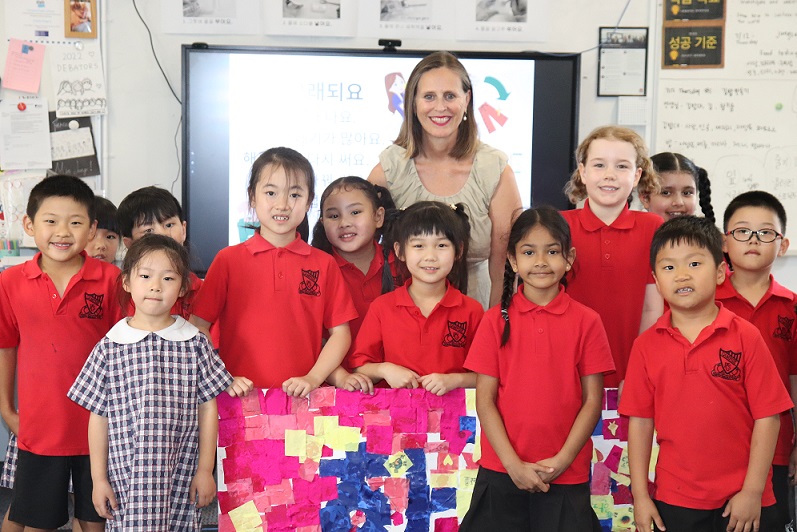
Campsie Public School, 11km southwest of Sydney’s bustling CBD, stands out as a model of cultural diversity and linguistic richness.
Being home to around 600 students, a majority of whom come from non-English speaking backgrounds, the school places a strong focus on bilingual education and programs that foster intercultural harmony and understanding.
At the helm of this rich multicultural campus is Berlinda Cook, a seasoned educator with a wealth of experience spanning nearly three decades in NSW public education.
Arriving at the school in 2018, Cook has become a pivotal figure in fostering an environment where diversity, inclusivity, and excellence converge. Under her leadership, the school embodies its motto, ‘Learning Together for Life’, and embraces the principle that ‘Character Alone Ennobles’.
Below, Berlinda Cook tells The Educator about her school community and how it is strengthening its partnerships to ensure students thrive, both in the classroom and beyond the school gates.
TE: Can you tell us about Campsie Public School, your educational offering, and how many students the school educates?
Campsie Public School is a unique place, located on the lands of the Gadigal and Wangal people, near Cooks River and Campsie's CBD. We have around 600 students, a decrease from over 700 a few years ago. We are one of four bilingual schools in New South Wales, focusing on Korean, with half of our students receiving daily Korean language instruction. Besides, we offer Chinese, Vietnamese, Arabic, Greek, Hindi, Spanish, and Indonesian. We are culturally diverse, with 97% of students from non-English speaking backgrounds, with significant Chinese, Korean, Vietnamese, Indonesian, and Nepalese communities. We also emphasize character development and have two mottos: "Learning Together for Life" and "Character Alone Ennobles."
TE: In your role and career as principal, what are you most passionate about?
My passion lies in public education. Despite my Catholic education, my children were educated in the public system, highlighting its quality. I believe a strong public education system is crucial for society. One challenge is the growing concentration of disadvantaged students in public schools. Another concern is the teaching crisis. I'm committed to making public education the first choice for families and new teachers. Campsie serves as a hub for professional experience, supporting teachers in their early careers to address this crisis.
TE: Can you talk us through the changes you are most affected by and how you are approaching their adoption?
We face challenges like the teaching crisis, student attendance, and mental health issues post-COVID. We also grapple with the rapid pace of emerging technologies and equity in technology access. We're addressing these by partnering with external agencies and health professionals, focusing on our Aboriginal and Torres Strait Islander community, and supporting diverse student needs. Next year, we'll establish classes for students diagnosed with autism. We're also working on an art therapy program and supporting transitions to high school. Our goal is to provide early support to children for a better future.
TE: Regarding health, wellbeing, and diversity and inclusion practices, how does the school approach this area with its staff and students?
We foster a sense of belonging for our diverse community, many of whom have no family in Australia. Initiatives like community excursions and Campsie Cares provide support and connection. The Campsie Cares program helps families in need confidentially. We celebrate cultural diversity with events like the Campsie Festival. For staff wellbeing, we have set personal wellbeing goals and offer professional learning programs. We're also participating in a program led by Dr. Adam Fraser to further support staff wellbeing.
TE: What are your thoughts on working with artificial intelligence (AI) technology?
My understanding of AI is evolving, and we're focusing on educating our community about it. AI offers opportunities for equitable access to information but requires discernment in its use, similar to social media and online safety. Our priority is ensuring students have access to technology, which is a significant financial investment. We seek guidance from leaders for safe and sensible AI integration in education.
TE: What are your top recommendations or requests to affect positive change in education?
We need to address the inequitable funding model in education. Unlike private schools, public schools often fundraise for basic needs. I advocate for adequate funding for public schools to uphold Australian values of fairness and equity, starting with education. This aligns with the Alice Springs Declaration's goal of promoting excellence and equity in education.


